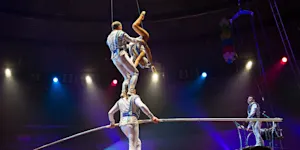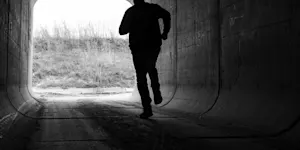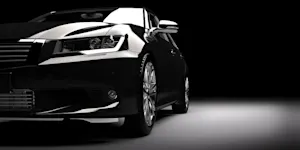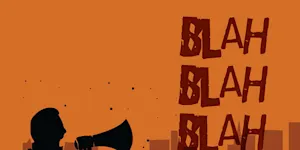What Makes This Word Tick
"Piggyback" is a delightful little word that conjures up images of children riding on their parent's or friend's shoulders. It's a playful term that often evokes feelings of nostalgia and youthful fun. It's used to describe a scenario where one person carries another on their back, usually as a means of transportation that's both practical and heartwarming.
If Piggyback Were a Person…
Imagine Piggyback as that spirited, adventurous child who is always ready to climb onto someone's shoulders for a better view of the parade, or to sneak some extra height in a game of tag. It's cheerful, energetic, and never shy to ask for a lift — a free spirit always up for a ride.
How This Word Has Changed Over Time
Originally used to describe physical lifting, the term "piggyback" has evolved and is now often used metaphorically. Today, you might hear it in the business world, where companies will "piggyback" on the success of others by leveraging existing infrastructure or strategies. It's a classic example of language adapting to its environment.
Old Sayings and Proverbs That Use Piggyback
While there aren't any ancient proverbs featuring "piggyback" directly, the spirit of teamwork and support it embodies has long been celebrated in phrases like "two heads are better than one" — a reminder that collaboration often leads to success, much like catching a ride on someone's back.
Surprising Facts About Piggyback
Did you know that the concept of piggybacking isn't exclusive to humans? In nature, baby animals often ride on their parent's backs for safety and transportation. From baby monkeys to tiny elephants, the piggyback ride is a universally understood sign of care and protection.
Out and About With This Word
Beyond playgrounds and backyards, "piggyback" shows up in tech talk, referring to a device or system using another's resources. Next time you hear about computer systems piggybacking on each other, you'll know it's more than just a playful phrase!
Pop Culture Moments Where Piggyback Was Used
In the realm of movies and TV shows, piggyback rides often make their appearance, symbolizing closeness and camaraderie. Think of any romantic comedy or family film you've seen — chances are, there's a sweet piggyback scene that made you smile.
The Word in Literature
"Piggyback" tends to prance into children's books, where it adds a playful, lively flair. It's the kind of word you'd find in a Roald Dahl book or a tale by Enid Blyton, where whimsical adventures are the norm and every page turns on the laughter of a joyous ride.
Moments in History with Piggyback
Consider the story of Sir Edmund Hillary and Tenzing Norgay's ascent of Mount Everest. While they didn't literally piggyback to the top, their teamwork mirrored the essence of the word — one supporting the other to achieve what seemed impossible.
This Word Around the World
In various languages, the idea of a piggyback ride carries similar expressions. In French, "porter à califourchon" is the phrase, emphasizing being astride someone's shoulders, while Spanish speakers might use "andar a caballito" — literally, riding like a little horse.
Where Does It Come From?
The origins of "piggyback" can be traced back to the 16th century, with the phrase "pick-a-back" as its forebear. The term reflects English's knack for evolving language in playful, unexpected ways, inviting new interpretations over time.
How People Misuse This Word
Sometimes people mistakenly use "piggyback" when they mean "leapfrog" — though both imply boosting or climbing, leapfrogging implies a jump between two points, while piggybacking involves a ride on someone's back.
Words It’s Often Confused With
Leapfrog: Implying jumping ahead in sequence or order, rather than physically being carried.
Hitchhike: Although both involve catching a ride, hitchhiking is more about travel, often with strangers, rather than a playful, personal lift.
Backpack: Simply a bag carried on one's back, devoid of the warm, fun connotation of carrying a person.
Additional Synonyms and Antonyms
Synonyms: ride, carry, shoulder Antonyms: walk, trek
Want to Try It Out in a Sentence?
"In a display of brotherly love, Sam gave his little sister a piggyback ride across the beach, her laughter echoing with every step."
















